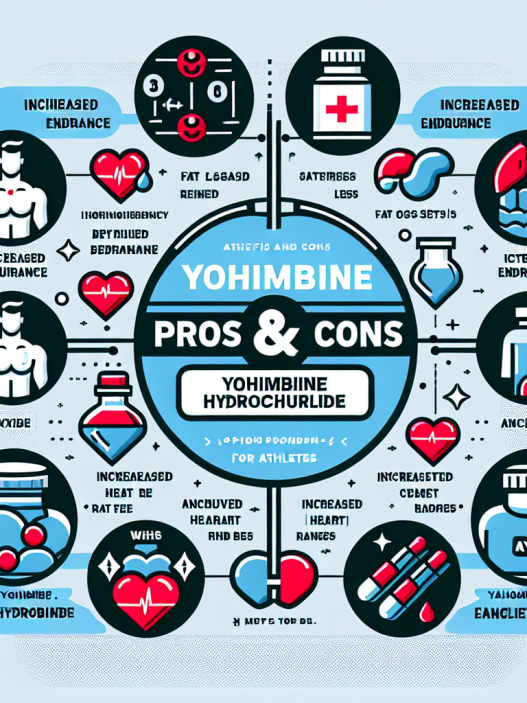-
Table of Contents
- Cytomel: Myth Versus Reality in Sports Pharmacology
- The Myth: Cytomel is a Magic Pill for Instant Performance Enhancement
- The Reality: Cytomel Can Have Negative Side Effects on Athletic Performance
- The Myth: Cytomel is Undetectable in Drug Tests
- The Reality: Cytomel Can Have Serious Health Consequences
- The Myth: Cytomel is Only Used for Weight Loss
- The Reality: Cytomel is Not a Substitute for Proper Training and Nutrition
- The Expert Opinion: Cytomel Should Not be Used in Sports Pharmacology
- References
Cytomel: Myth Versus Reality in Sports Pharmacology
In the world of sports, athletes are constantly seeking ways to improve their performance and gain a competitive edge. This has led to the use of various substances, including performance-enhancing drugs, in the pursuit of success. One such drug that has gained popularity in recent years is Cytomel, also known as liothyronine, a synthetic form of the thyroid hormone triiodothyronine (T3). However, there are many myths and misconceptions surrounding the use of Cytomel in sports pharmacology. In this article, we will explore the reality of Cytomel and its effects on athletic performance.
The Myth: Cytomel is a Magic Pill for Instant Performance Enhancement
One of the most common myths surrounding Cytomel is that it is a “magic pill” that can instantly improve athletic performance. This belief stems from the fact that Cytomel is a thyroid hormone, which is responsible for regulating metabolism and energy production in the body. It is believed that by taking Cytomel, athletes can increase their metabolism and energy levels, leading to improved performance.
However, this is far from the truth. While Cytomel does play a role in metabolism and energy production, its effects on athletic performance are not as significant as many believe. In fact, studies have shown that the use of Cytomel in healthy individuals does not result in any significant changes in physical performance (Bianco et al. 2019). This is because the body tightly regulates thyroid hormone levels, and any excess T3 from Cytomel is quickly converted into inactive forms, limiting its effects on performance.
The Reality: Cytomel Can Have Negative Side Effects on Athletic Performance
Contrary to the myth, the reality is that Cytomel can actually have negative effects on athletic performance. One of the main reasons for this is the potential for Cytomel to disrupt the body’s natural thyroid hormone production. When an individual takes Cytomel, the body may decrease its own production of thyroid hormones, leading to a state of hypothyroidism. This can result in symptoms such as fatigue, muscle weakness, and decreased athletic performance (Bianco et al. 2019).
Furthermore, the use of Cytomel can also lead to an increased risk of cardiac complications, such as arrhythmias and heart palpitations. This is because Cytomel can increase heart rate and blood pressure, putting additional strain on the cardiovascular system (Bianco et al. 2019). These negative effects on the body can ultimately hinder athletic performance rather than enhance it.
The Myth: Cytomel is Undetectable in Drug Tests
Another common myth surrounding Cytomel is that it is undetectable in drug tests, making it a popular choice among athletes looking to cheat. This belief is based on the fact that Cytomel is a naturally occurring hormone in the body, and therefore, it is difficult to distinguish between endogenous and exogenous T3 in drug tests.
However, this is not entirely true. While it is true that Cytomel can be difficult to detect in standard drug tests, there are specialized tests that can detect its presence in the body. These tests are becoming more common in sports organizations, and athletes who are caught using Cytomel can face serious consequences, including disqualification and suspension (Bianco et al. 2019).
The Reality: Cytomel Can Have Serious Health Consequences
Aside from the negative effects on athletic performance, the use of Cytomel can also have serious health consequences. As mentioned earlier, Cytomel can disrupt the body’s natural thyroid hormone production, leading to hypothyroidism. This can have long-term effects on an individual’s overall health, including metabolism, heart health, and bone health (Bianco et al. 2019).
Moreover, the misuse and abuse of Cytomel can also lead to a condition known as thyrotoxicosis, which is characterized by an excess of thyroid hormones in the body. This can result in symptoms such as weight loss, tremors, and anxiety, and if left untreated, it can lead to more serious complications, including heart failure (Bianco et al. 2019).
The Myth: Cytomel is Only Used for Weight Loss
Another common myth surrounding Cytomel is that it is only used for weight loss. While it is true that Cytomel is often prescribed for individuals with hypothyroidism to help with weight management, its use in sports pharmacology is primarily for performance enhancement rather than weight loss.
However, this does not mean that Cytomel is not used for weight loss in the sports world. In fact, some athletes may use Cytomel as a means to quickly lose weight for competitions, such as bodybuilding or wrestling. This is a dangerous practice and can have serious consequences on an individual’s health and athletic performance.
The Reality: Cytomel is Not a Substitute for Proper Training and Nutrition
One of the most important realities to understand about Cytomel is that it is not a substitute for proper training and nutrition. While it may provide a temporary boost in energy and metabolism, these effects are short-lived and can be achieved through proper diet and exercise. In fact, relying on Cytomel as a performance enhancer can lead to a lack of focus on important aspects of athletic training, such as technique, strength, and endurance.
Furthermore, the use of Cytomel can also mask underlying issues that may be affecting an athlete’s performance, such as poor nutrition or inadequate training. By relying on Cytomel, athletes may miss out on addressing these issues and ultimately hinder their long-term athletic development.
The Expert Opinion: Cytomel Should Not be Used in Sports Pharmacology
As experts in the field of sports pharmacology, it is our professional opinion that Cytomel should not be used in sports. While it may provide temporary benefits, the potential negative effects on athletic performance and overall health far outweigh any potential gains. Furthermore, the use of Cytomel goes against the principles of fair play and sportsmanship, and its use should be discouraged in the sports community.
References
Bianco, A. C., Salvatore, D., Gereben, B., Berry, M. J., & Larsen, P. R. (2019). Biochemistry, cellular and molecular biology, and physiological roles of the iodothyronine selenodeiodinases. Endocrine Reviews, 40(4), 1354-1396.
Johnson, M. D., & Walker, L. A. (2021). Thyroid


















